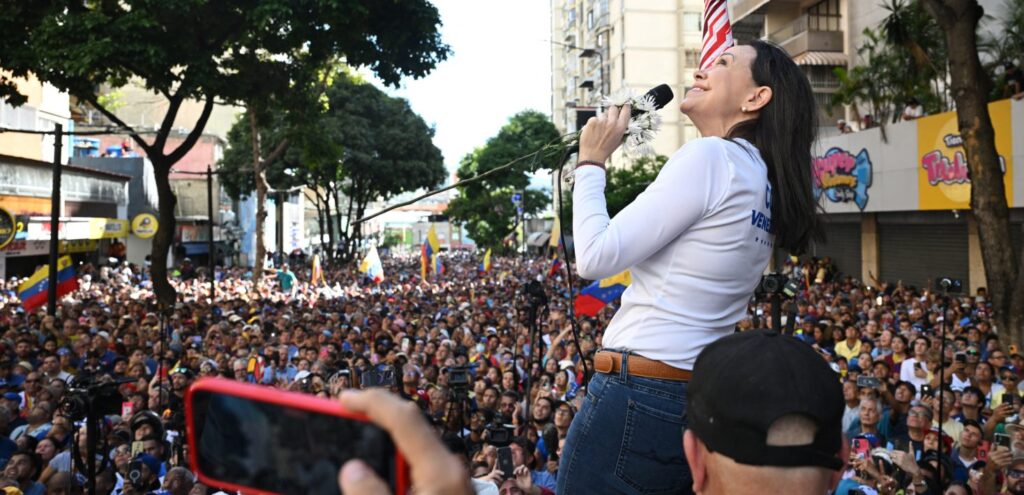The Role of Middle Powers in Global Diplomacy
In today’s fast-changing world, where the headlines are dominated by superpowers like the United States, China, and Russia, it is easy to overlook the quieter but no less important role of middle powers in shaping global affairs. Countries like Turkey, South Korea, and Australia do not command vast militaries or global financial might, yet they have repeatedly shown that diplomatic influence is not solely measured by size. Instead, these nations “punch above their weight” by mediating conflicts, advancing climate diplomacy, and strengthening regional and global security. As a graduate student observing these dynamics, I am increasingly struck by how middle powers manage to act as bridge-builders, facilitators, and sometimes even moral leaders in a fragmented international system.
What Makes a Middle Power?
Scholars generally define middle powers as countries that are not superpowers but still exert meaningful influence beyond their borders, often through diplomacy, coalition-building, and norm-setting (Cooper et al., 1993). Unlike major powers that rely on hard power — military or economic coercion — middle powers tend to rely on soft power and multilateralism. Their influence comes not from commanding others, but from persuading, mediating, and sometimes inspiring.
Turkey: A Complex Regional Broker
Turkey is perhaps one of the most compelling examples of a middle power with an outsized impact. Straddling Europe and Asia, Turkey’s geographic location gives it a unique role as a bridge between East and West. Its diplomatic agility was on display during the Russia-Ukraine war, where Turkey helped broker the 2022 Black Sea Grain Initiative. This deal, which allowed Ukrainian grain exports to flow despite the conflict, helped ease a looming global food crisis — particularly in vulnerable regions like Africa and the Middle East (World Food Programme, 2023).
But Turkey’s role is not without controversy. Under President Recep Tayyip Erdoğan, Turkey has pursued a more assertive foreign policy, intervening militarily in Syria and Libya and frequently clashing with European powers. While Turkey has mediated between adversaries, critics argue that its domestic democratic backsliding and nationalist posturing weaken its credibility as a neutral broker (Ozkececi-Taner, 2021). For graduate students like myself studying international relations, Turkey offers a fascinating case of a middle power balancing regional ambitions with global responsibilities — sometimes skillfully, sometimes clumsily.
South Korea: From Conflict Zone to Diplomatic Player
South Korea’s transformation from a war-torn nation into an economic powerhouse is often described as a “miracle,” but what is equally impressive is its emergence as a respected diplomatic player. Having experienced war and poverty, South Korea understands the stakes of peace and development on a visceral level. It has actively sought to de-escalate tensions on the Korean Peninsula, including through the so-called “Sunshine Policy” and participation in the Six-Party Talks on North Korea’s nuclear program (Lee, 2022).
What stands out about South Korea is its ability to connect its national experience to global concerns. Beyond regional security, Seoul has championed global health, development, and digital governance. During the COVID-19 pandemic, South Korea not only controlled the virus at home but also provided testing kits and masks to other countries, reflecting its growing sense of global responsibility. As a member of MIKTA — a group of middle powers that includes Mexico, Indonesia, Turkey, and Australia — South Korea helps amplify the voices of emerging and traditional middle powers alike (Kim & Cooper, 2019).
For students examining soft power, South Korea’s global cultural influence, especially through K-pop and film, offers a vivid example of how culture and diplomacy can intersect in unexpected but powerful ways.
Australia: Regional Steward and Climate Advocate
Australia offers yet another fascinating example of middle power diplomacy, particularly in the Indo-Pacific. Its close security alliance with the United States anchors its foreign policy, but Australia has also developed its own voice, especially in regional and climate diplomacy. Australia has long advocated for the concerns of Pacific island nations, which are on the frontline of climate change impacts such as sea-level rise and extreme weather events (Gyngell & Wesley, 2007).
At the same time, Australia has been a key player in shaping Indo-Pacific security through frameworks like the Quad (with the US, Japan, and India). However, Australia’s climate diplomacy has faced domestic contradictions. While Canberra has promised ambitious climate targets internationally, it has been criticized at home and abroad for its continued reliance on coal and fossil fuel exports. This tension makes Australia a revealing case for students exploring the intersection of domestic politics and global diplomacy.
The Quiet Power of Middle Powers
What makes middle powers so important is that they often step in where great powers either cannot or will not. In a world where US-China rivalry increasingly defines international relations, middle powers act as buffers, mediators, and coalition builders. They help uphold international norms, contribute to peacekeeping, and often push forward global agreements on issues like climate change and nuclear disarmament (Jordaan, 2003).
Moreover, middle powers play an outsized role in multilateral institutions. Their participation lends legitimacy to global agreements and institutions that might otherwise be seen as tools of the great powers. For instance, without the contributions of middle powers, the Paris Agreement or global trade negotiations would likely look very different — and arguably much weaker.
Limits and Challenges
However, middle powers are not without their limitations. They operate under constraints — smaller military budgets, limited economic leverage, and sometimes domestic political instability. Turkey’s credibility, for example, is often questioned due to its democratic backsliding. Australia’s climate advocacy is complicated by its fossil fuel interests, and South Korea’s diplomatic room to maneuver is restricted by the shadow of US-China competition. Furthermore, middle powers can become trapped in great power rivalries, which can force them into uncomfortable choices or limit their influence.
Conclusion
As we move deeper into a multipolar world, the importance of middle powers will only grow. Turkey, South Korea, and Australia show that diplomatic influence is not just a function of size or strength but also of strategy, agility, and sometimes moral leadership. For those of us studying international relations, middle powers remind us that world politics is not just a game of giants — it is also shaped by those who can mediate, inspire, and innovate on the global stage. Understanding their role is essential to grasping the full picture of global diplomacy today.
Bibliography
Cooper, A.F., Higgott, R.A. and Nossal, K.R., 1993. Relocating middle powers: Australia and Canada in a changing world order. Vancouver: UBC Press.
Gyngell, A. and Wesley, M., 2007. Making Australian foreign policy. 2nd ed. Cambridge: Cambridge University Press.
Jordaan, E., 2003. The concept of a middle power in international relations: distinguishing between emerging and traditional middle powers. Politikon, 30(1), pp.165-181.
Kim, S. and Cooper, A.F., 2019. Middle power leadership and the evolution of the MIKTA partnership. Global Governance, 25(1), pp.63-83.
Lee, S., 2022. South Korea’s middle power diplomacy in the era of rising US–China rivalry. Journal of Contemporary Asia, 52(1), pp.15-34.
Ozkececi-Taner, B., 2021. Turkey’s middle power foreign policy in the twenty-first century: a historical and conceptual re-evaluation. Turkish Studies, 22(3), pp.325-341.
World Food Programme, 2023. Black Sea Grain Initiative: A lifeline for global food security. [online] Available at: https://www.wfp.org/publications/black-sea-grain-initiative-lifeline-global-food-security [Accessed 30 April 2025].



